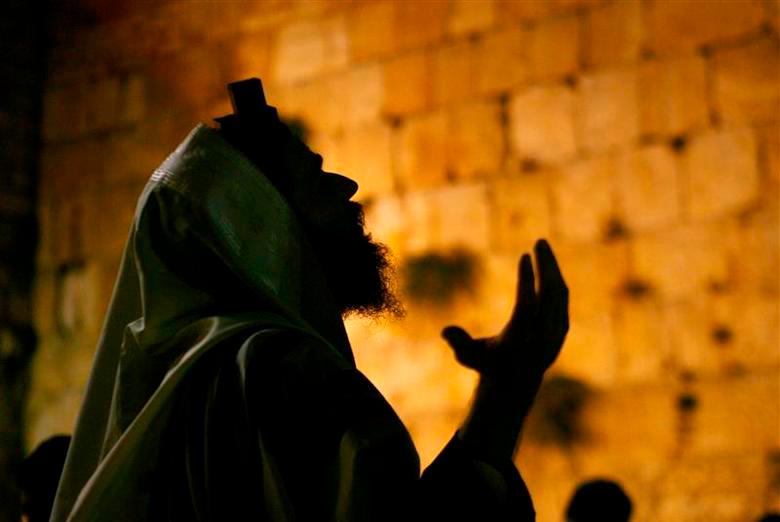WOULD any leader dare suggest changing the first principle of the Rukun Negara? God forbid, you may shout. Yet, deep reflection is necessary. The first principle says “Belief in God” and we take it as sacrosanct. This fixation on belief is seriously deficient and should be changed to “Knowledge of God” as knowledge requires evidence based on observation and analysis. Belief means you do not know. If you truly know, you will not say that you believe.
Knowing that the North-South Expressway takes you to Johor, you will not say “I believe that the North-South Expressway takes me to Johor”. Medieval Europeans believed that the Sun revolved around the Earth as so arranged by God. The astronomer Galileo knew it was a false belief promulgated in the absence of knowledge, and he opposed it. However, belief gets dangerous when it is upheld by dogmatic certainty. Galileo was placed under lifelong house arrest for heresy.
Belief in God often requires the believer to also believe that there is just one true religion out of so many, only one authentic scripture containing the Word of God and one sole authentic saviour for all humanity in our time.
A deep line is etched to separate believers from non-believers, and we even have politically inclined religious elders who teach the belief that political opponents fall into the category of non-believers destined for hell.
Religion degenerates into a battlefield and its history is scarred by the fires of holy wars. Out of hubris, authority figures may encourage conversion from one religion to another, regardless of the communal tensions such actions will provoke. Conversion hinges on the belief that only your religion can take people to heaven.
Several authorities have ruled that conversion of children is all right so long as one parent agrees.
Knowledge is based on evidence, whereas belief rests on mere claims. A divorcee claimed to be a priestess of the Goddess Kali, and a retiree who believed her claim that she could get Kali to grant him riches and health was cheated of RM8,750.
Many religious beliefs are spun out of wrong interpretations of scripture. Frankness is needed here. Scriptures are ancient writings and to understand why certain observances are prescribed and prohibitions imposed, you have to know that era – whether 1,500 or 3,500 years ago – to grasp the cultural, geopolitical and psychological contexts that influence the wordings of scripture.
The knowledge that you can gain from reading or reciting a scripture is limited as there is a first page and a last page, with no additions allowed. A person who reads the scriptures of many religions has an obvious advantage as he is like someone who can enter a ballroom through many doors. A ballroom is designed to have many doors for entry through numerous directions.
But whether your beliefs are founded on one or more scriptures, Lord Buddha 2,500 years ago warned in the Kalama Sutta: “Do not believe in anything, simply because it is found written in your religious books. Do not believe in anything, merely on the authority of your teachers and elders. But after observation and analysis, when you find that anything agrees with reason and is conducive to the good and benefit of one and all, then accept it and live up to it.” This is the international gold standard for the pursuit of knowledge.
Before Malaysians can get to know God, they must shed their fear of being contaminated by other religions. Buddhist sage Dr K. Sri Dhammananda wrote eloquently: “Truth does not belong to any particular religion. Even those who do not claim any religion also know how to appreciate the truth. There is no need for us to belittle and castigate one another.”
Other than the written scriptures, there is one universal living scripture that is always in the process of being updated. This universal scripture is the book of nature or God’s other book, as the 16th century Christian Reformation leader Martin Luther called it. Luther helped spark a scientific revolution, pivoting many European scholars to the view that scriptures were not the only way to gain knowledge of God.
The Christian West leapt ahead because of its passion for scientific learning to this day. As Nobel Prize-winning theoretical physicist Frank Wilczek wrote in his 2022 book Fundamentals: “In studying how the world works, we are studying how God works, and thereby, learning what God is.” Scientific investigation is a religious duty, with scriptures as complementary texts.
In his speech officiating the 15th Parliament on Feb 13, the King expressed hope that diversity and plurality will no longer be a cause of conflict and disunity. To dispel all misgivings over the value of diversity and to answer the political question – are we better off without diversity? – we must know that without diversity there is stagnation. To understand why this is so, you need to read God’s other book or the book of nature.
Organic life began as single-celled prokaryotes, such as bacteria. Later, there was a divergence from simple cells leading to the emergence of complex-celled organisms called eukaryotes. Was it a leap over the moon? No. An intermediate form of primitive life called archaea, popularly known as microbes, has been found to be the link. From a microbe called lokiarchaeota, the complex-celled eukaryotes evolved. Without microbes there would have been stagnation at the single-celled level, and without eukaryotes diversifying into higher and higher forms there would be no humans.
The three pathways to diversity are hybridisation, isolation and mutation. Hybridisation between plant species is common, and also occurs in animals. The red wolf is a cross between the grey wolf and coyote. Other examples of hybridisation include the European bison, the Clymene dolphin, the cichlids fish and the Artibeus schwartzi, which is a mix of three animal types. Modern humans are the products of interbreeding with the now extinct Neanderthals and Denisovans.
The graphically sketched tree of life shows that humans and all the other 1.2 million known species are either closely related or distantly related in that we are family with just one common ancestor who lived 3.8 billion years ago.
Where hybridisation is a common pathway to introduce physical changes, geographical isolation separating the people of India, China and the West Asia-Mediterranean region has led to significant cultural and religious diversities. These diversities enabled the people to take advantage of all possibilities available in their distinct environments. But the differences are not between truth and falsehood. Rather, they are differences between the colours of truth.
Cultural hybridisation occurred when Buddhism crossed over the Himalayas and blended with Confucianism and Taoism to form a new bedrock for Chinese civilisation.
The writer champions interfaith harmony. Comments: letters@thesundaily.com











